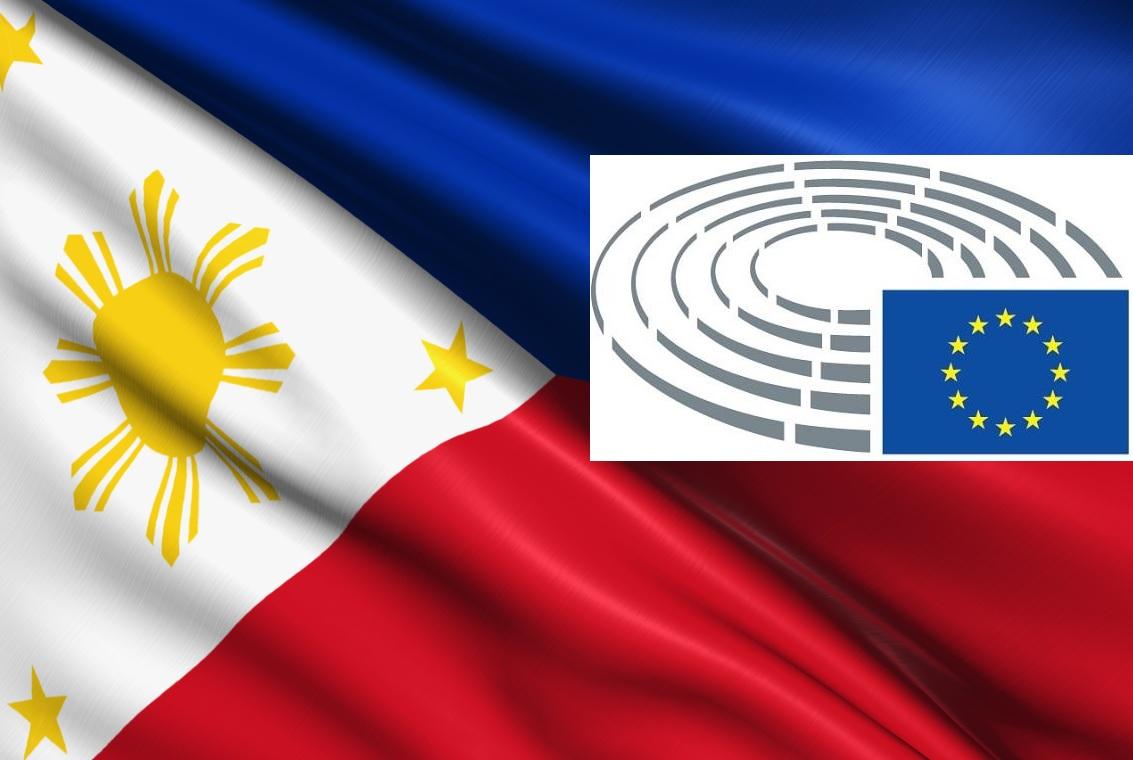EU Parliament wants to strike down Philippines' zero-tariff export status

Dute to "deteriorating" human rights situation in the Philippines, the European Parliament is pushing for the revocation of the country's exports tariff exemption.
Under the Generalized Scheme of Preferences Plus (GSP+) – a mechanism that gives developing countries the privilege of exporting zero-duty merchandise to EU-member states – some of Philippine exports to Europe are benefitting from tariff breaks.
In a resolution dated September 17, the European Union’s legislative assembly said that “given the seriousness of the human rights violations in the country, calls on the European Commission, in the absence of any substantial improvement and willingness to cooperate on the part of the Philippine authorities, to immediately initiate the procedure which could lead to the temporary withdrawal of GSP+ preferences.”
In the case of the Philippines, the GSP+ covers 6,274 locally-made products.
PHL explains side to EU Commission
In a statement, Trade Secretary Ramon Lopez said the government was “able to explain objectively the Philippines side on issues that are raised and we don't see any reason why our GSP+ privilege will be withdrawn.”
“The Philippines has always been working closely and fully cooperating with the EU Commission –the main EU institution in-charge of implementing the GSP+ scheme,” Lopez said.
“We have an Inter-agency working group in place that attend to the regular monitoring visits and respond accordingly to various issues if and when they are officially raised by the EU Commission,” he said.
The Trade chief said the EU Commission has a mechanism in place and process to follow to verify issues before sanctions are imposed.
The EU grants special incentives to developing countries that ratify 27 core international conventions on human and labor rights, environmental protection and good governance as well as from the effective implementation thereof.
In 2019, at least €2 billion or about P113 billion worth of Philippine goods entered the EU under the zero-tariff GSP+ mechanism.
Based on records, the EU is the Philippines’ fourth largest trading partner, accounting for almost 9% of the country’s total trade.
Also, trade in goods between the two partners equaled € 14.9 billion in 2019.
EU Parliament's resolution came at a time when the Philippines is grappling with the fallout from the COVID-19 pandemic that plunged the economy into a deep recession in the second quarter of 2020, contracting by 16.5% —the worst on record in nearly 30 years.
In its resolution, the EU Parliament cited the UN High Commissioner for Human Rights’ findings that as of June 30, 2020 at least 8,663 people had been killed in relation to the Duterte administration anti-drug campaign.
Deteriorating freedoms
Also, the EU parliament sounded the alarm over the “deteriorating level of press freedom in the Philippines,” citing the cyberlibel conviction of Ressa and a former Rappler researcher-writer as well as the shutdown of ABS-CBN.
It also urged “impartial, transparent, independent and meaningful investigations into all extrajudicial killings, including the deaths of Jory Porquia, Randall ‘Randy’ Echanis and Zara Alvarez.”
Porquia, Echanis, and Alvarez were all activists killed this year by unidentified assailants.
Moreover, the European Parliament appealed to Philippine authorities to “drop all politically motivated charges against Senator Leila de Lima, to release her while she awaits trial, to allow her to freely exercise her rights and duties as an elected representative, and to provide her with adequate security and sanitary conditions while in detention.”
“[The parliament] condemns all threats, harassment, intimidation, rape and violence against those who seek to expose allegations of extrajudicial killings and other human rights violations in the country [and] denounces the misuse of the law and judiciary systems as a means of silencing critical voices,” it said.
In 2016, the EU Parliament issued a resolution urging Philippine authorities to launch an immediate investigation into the rising death toll in war on drugs under President Rodrigo Duterte. —LBG, GMA News




